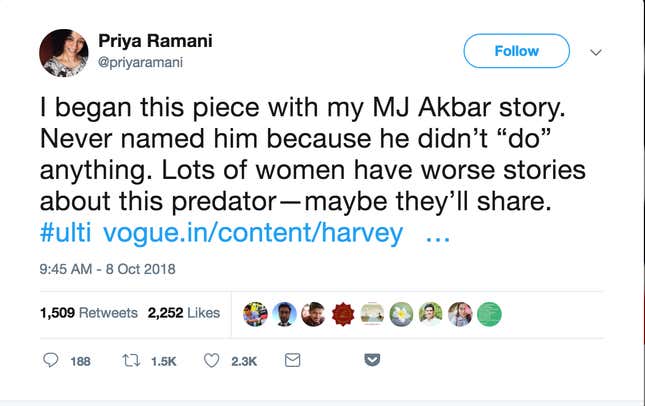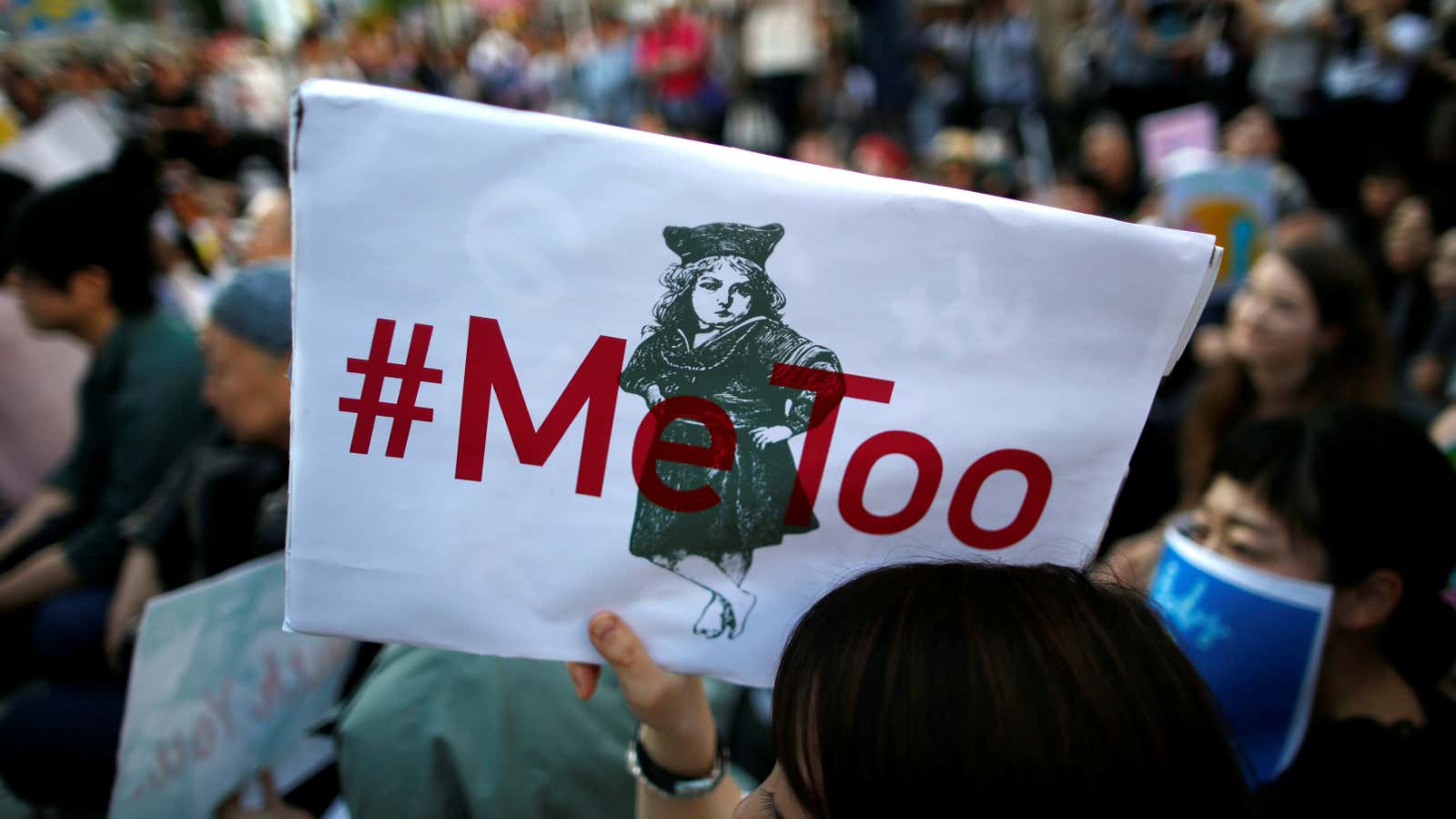Editor’s note: This article was redacted on Oct. 17 pursuant to an order from the high court of Delhi.
After outing veteran Bollywood stars, popular stand-up comics, and senior journalists, India’s widening #MeToo wave has arrived at the doorstep of the government of India.
Mobasher Jawed Akbar, better known as MJ Akbar, minister of state for external affairs, has been accused of conducting inappropriate interviews in hotel rooms with young women in his previous role as a media veteran.
Journalist Priya Ramani, who wrote a piece for Vogue India in October 2017 titled “To the Harvey Weinsteins of the world,” tweeted that the nameless “celebrity editor” whose conduct she had described in the piece was indeed Akbar, who was one of India’s best-known newspaper editors till he joined the Narendra Modi government.

Ramani’s piece described how Akbar had asked her to sit on his hotel room bed:
Come sit here, you said at one point, gesturing to a tiny space near you. I’m fine, I replied with a strained smile. I escaped that night, you hired me, I worked for you for many months even though I swore I would never be in a room alone with you again.
…
You whip out your tired tricks for a new batch of women every year. “Watch me shower.” “Can I give you a massage?” “A shoulder rub?” “I’m ready for my blow job now.” “Are you married?”
In just a few days, the #MeToo movement in India has forced several powerful men out of their leadership positions, including Hindustan Times journalist Prashant Jha, and comedy collective All India Bakchod’s (AIB) co-founders Tanmay Bhat and Gursimran Khamba. Now, digital entertainment platform Hotstar has cancelled the third season of “On Air with AIB” in light of the revelations.
On Oct. 09, KR Sreenivas, The Times of India’s resident editor in Hyderabad, was reportedly sent on administrative leave after seven women, allegedly harassed by him, sent a petition seeking his termination.
In the meantime, many women who had preferred anonymity till now have chosen to speak publicly about their harrowing experiences.
Editor’s note: The article was redacted here pursuant to the court order.
Another journalist, Apoorva Sripathi, spoke publicly about her alleged harassment by author Kiran Nagarkar. Her account had previously been publicised by journalist Sandhya Menon, who has over the past few days tweeted many screenshots of conversations with women who had wished to speak anonymously about incidents of harassment they had faced.
Quoting the original tweet, which describes an incident in which Nagarkar had allegedly groped a young woman in a hotel room, Sripathi said, “I’m sorry I was afraid of putting my name to this but no longer.”
“MeToo isn’t a moment. It’s a movement, a galvanisation,” Harnidh Kaur, a writer who has tweeted actively through this wave of #MeToo, often to share anonymous accounts of sexual harassment, told Quartz. “There’s a strong cabal of women supporting and protecting each other and it’s about time.”
Meanwhile, the storm continues to roil Bollywood. Just days after allegations surfaced against director Vikas Bahl and actor Rajat Kapoor, another big name has been outed.
Writer and showrunner Vinta Nanda has accused a veteran actor of having violently raped and brutalised her around 20 years ago. Taking cognisance, industry body Cine And TV Artistes’ Association (CINTAA) today (Oct. 09) tweeted saying that the actor, now believed to be Alok Nath, would be sent a show-cause notice to explain why he should not be expelled.
Reacting to the allegations, Nath told a news channel:
Neither I am denying this nor I would agree with it. It (rape) must have happened, but someone else would have done it.
